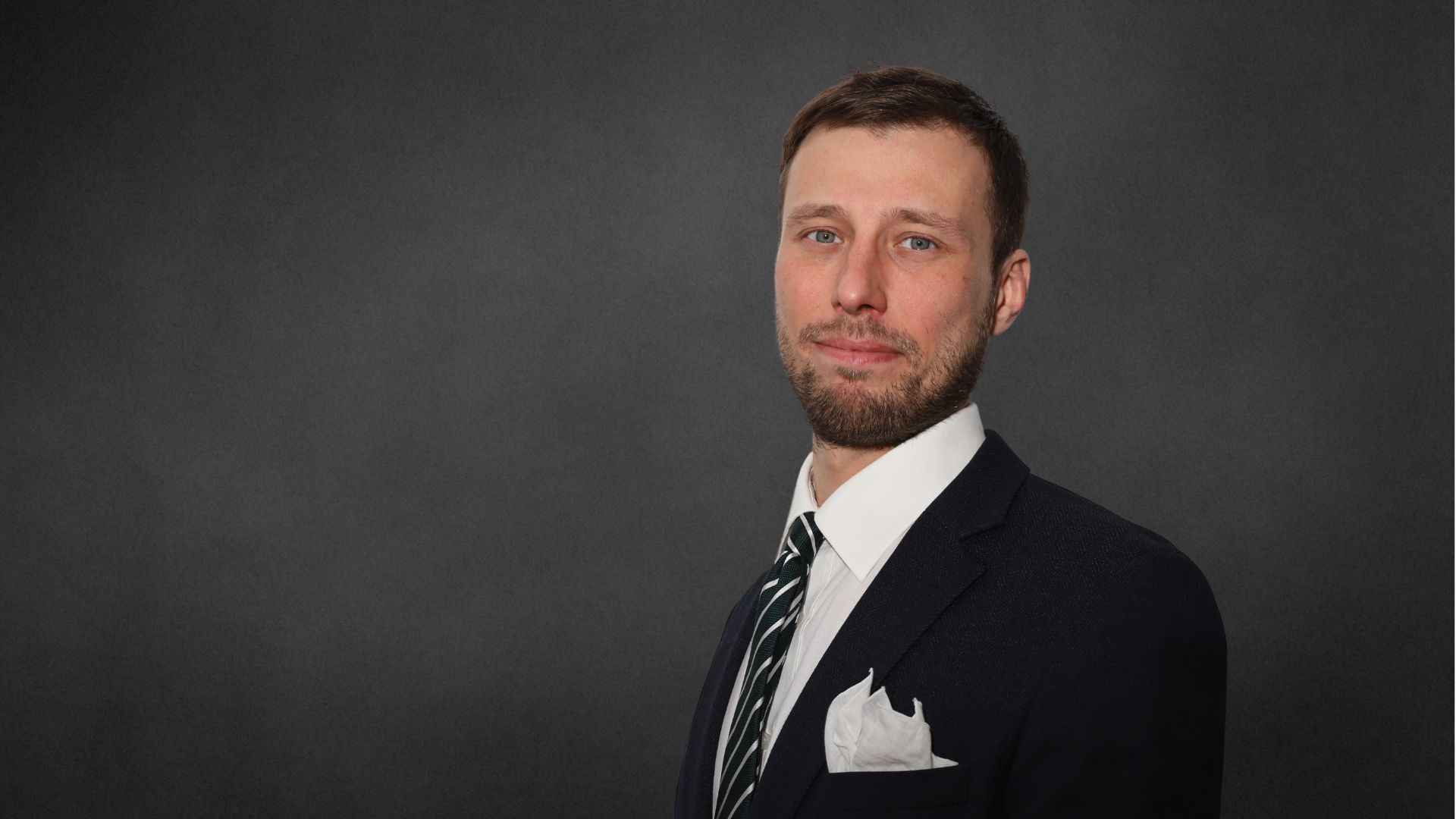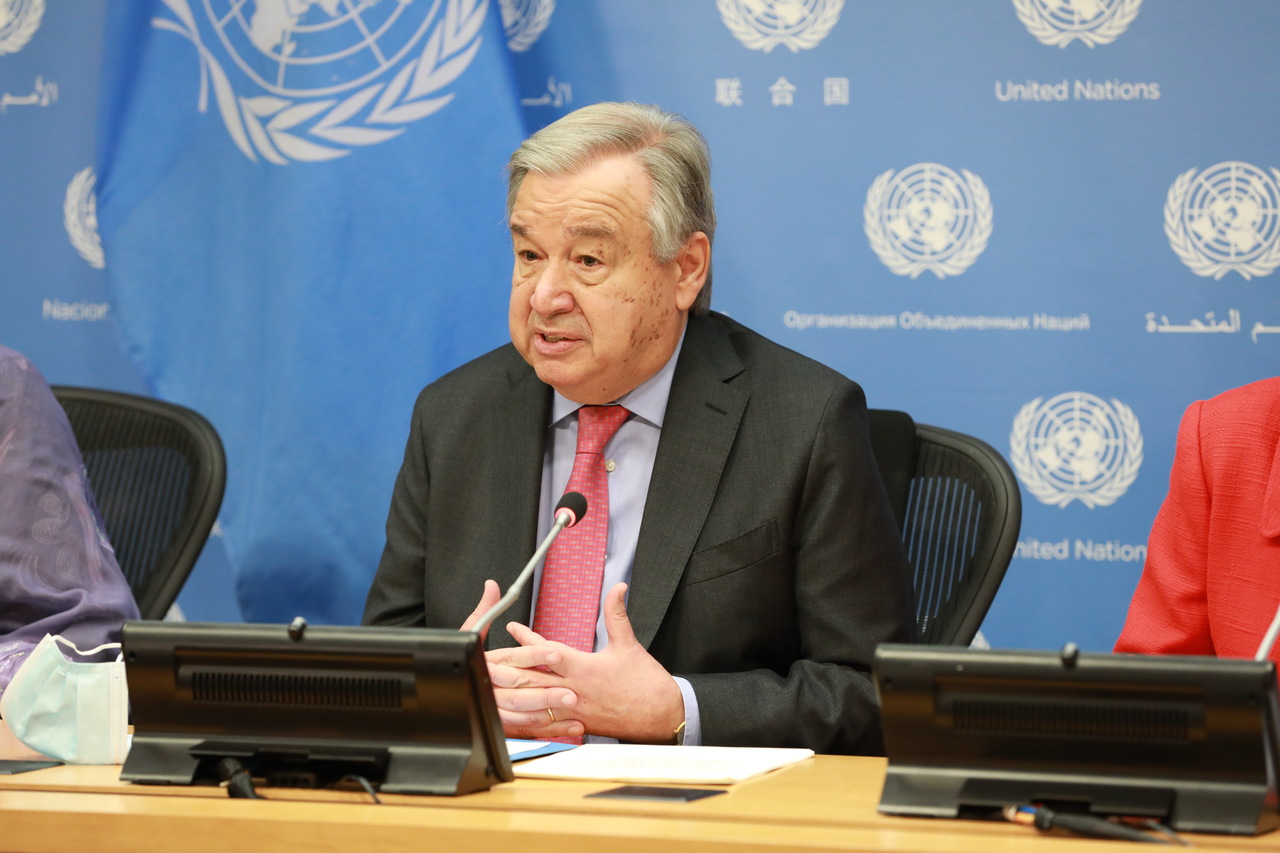UN Summit of the Future 2024 Attempts to Accelerate SDGs
A series of political and economic crises in recent years has slowed the achievement of the Sustainable Development Goals (SDGs). The Summit of the Future, organised during the 79th session of the UN General Assembly, aims to mobilise support for SDG implementation once again. In a situation of increasing international tensions, the role of developing countries will grow. It is therefore advisable for Poland and the EU to consider supporting their desired goals as expressed in the declarations adopted at the summit and strengthening mutual relations.
(2).png) BRYAN R. SMITH / Reuters / Forum
BRYAN R. SMITH / Reuters / Forum
Delays in SDG Implementation
Adopted by all UN members in 2015, the 2030 Agenda for Sustainable Development set 17 goals (SDGs), covering three dimensions: social, economic and environmental. The pace of their implementation had been too slow to achieve the desired changes by 2030 even before the COVID-19 pandemic and the series of global political and economic crises of recent years slowed them down further. These have had a particularly negative impact on the no poverty; zero hunger; good health and wellbeing; quality education; decent work and economic growth; industry, innovation, and infrastructure; and peace, justice, and strong institutions goals. This is a direct result of the global crises as well as increasing difficulties in access to financing, especially for developing countries. As a result, progress towards the SDGs has been minimal since 2020, according to the UN Sustainable Development Solutions Network (a non-profit organisation working under the auspices of the UN Secretary-General), and virtually zero or negative in many regions, such as Central Europe and Central Asia or Latin America and the Caribbean. Only 17% of the specified targets have already been achieved or are on track to be achieved by 2030. The slowdown in the achievement of the SDGs and likely failure to achieve them by 2030 will be particularly problematic for developing countries, whose needs are greatest and where a failure to meet the targets will have the most acute consequences for the societies.
Summit of the Future
In September 2023, at the Sustainable Development Goals Summit, representatives of UN member states reaffirmed their support for the SDGs. This year’s Summit of the Future aimed, among other things, to develop more concrete solutions, proposed in the Pact for the Future, to achieve SDGs by 2030. It was an initiative of the UN Secretary-General, first proposed in 2021. The summit was held from 20-23 September, with a high-level meeting of country representatives taking place on 22-23 September as part of the UN General Assembly. The summit was attended by top UN officials, as well as representatives of member states and international organisations, including UN Secretary General Antonio Guterres, German Chancellor Olaf Scholz and Namibian President Nangolo Mbumba (co-facilitators in the preparatory process of the summit, including the Pact’s negotiations), U.S. Secretary of State Anthony Blinken, Brazilian President Lula da Silva, Indian Prime Minister Narendra Modi, Chinese Foreign Minister Wang Yi, and European Council President Charles Michel. President Andrzej Duda, representing Poland, declared its readiness to work with partners to fully implement the Pact for the Future. In his opening address, the Secretary General Guterres pointed out the inadequacy of current multilateral tools and institutions to meet the challenges in the environmental, economic, and technological fields and called for their reform.
The summit brought about three declarations: Pact for the Future, Global Digital Compact, and Declaration on Future Generations, which are annexes to the Pact. There was a last-minute attempt by Russia to derail their adoption, pointing to the lack of sufficient support for the proposals and a violation of procedures, claiming that as a result the declarations represented primarily Western interests. The amendment proposed by Russia, Belarus, and Nicaragua emphasising the prohibition of UN intervention in the domestic affairs of member states—although in reality being merely a political declaration aimed at paralysing the summit—was failed to be considered on a 143\-7 vote of the Assembly, with 15 abstentions. Apart from Belarus and Nicaragua, the Russian proposal was supported by North Korea, Iran, Sudan, and Syria, and strongly opposed by Congo, Cameroon, and Mexico, among others.
The Summit’s Decisions
The Pact for the Future contains plans to undertake 56 actions to stimulate and guide international development. They address a broad list of development issues: implementation of the SDGs, financing, international peace and security, scientific and digital issues, future generations and transformation of international governance, both the UN and international financial institutions. A large number of the proposed solutions repeat or refer to the goals adopted as SDGs, such as eradicating poverty and hunger, combating climate change, protecting the environment, peacekeeping and protecting civilians in armed conflict or reducing inequality.
A key problem for development (including the achievement of the SDGs) is securing sufficient funding. These have been repeatedly identified as a problem in, for example, the UN 2024 Sustainable Development Goals Report. In its introductory section, the UN Secretary General described the current international financial infrastructure (i.e., a complex, spontaneously created and often chaotic set of international financial frameworks, rules, institutions, and markets governing international financial flows) as outdated, dysfunctional, and unfair. Problems include the lack of adequate representation of developing countries in international financial institutions or the structural privileging of creditors on the sovereign debt market. The Pact for the Future envisages efforts to increase financing for development “from all sources”, including by reiterating the call for developed countries to contribute 0.7% of their gross national income to official development assistance. It also includes a general declaration of support for mobilising resources from the private sector.
The Pact calls for broad reform of the international financial architecture aimed at achieving the SDGs. This should be understood as a declaration that development goals will take precedence over the political interest of developed countries and the economic interest of financial institutions, coming primarily from developed countries, but also, for example, China. The Pact also proposes concrete measures in the area of the functioning of the international financial institutions—the World Bank and the International Monetary Fund—both in terms of their lending practices and an increased role for developing countries in decision-making. One of the suggested solutions is also to continue working on a sovereign debt restructuring mechanism that would help deal with debt crises without placing excessive burden on societies.
Conclusions
A series of political and economic crises in recent years has hit developing countries particularly hard, seriously jeopardising the achievement of the SDGs within the original timeframe. From the point of view of the Global South, bringing attention to this issue will be one of the most important challenges in the coming years.
The solutions proposed in the Pact have been negotiated in such way to be acceptable to almost all UN members, while covering a broad scope of subjects. As a result, many of them are utopian, vague, or repeat previous arrangements. Ideas that avoided these problems, on the other hand, have been present in the debate for decades, and it is unlikely that their implementation and a breakthrough in the treatment of developing countries is coming anytime soon. While the summit will bring greater attention to development issues and the SDGs, their full realisation by 2030 remains unlikely.
The adopted declarations remain a useful list of postulates, the implementation of which will be of interest to developing countries and the support of which may improve the perception of Poland among them. This is advisable because as the economic and political importance of developing countries increases, it will be beneficial to intensify relations. In a situation of growing tensions, relations in areas on the border between economic and security relations (e.g., issues of supply chains or sanctions) will become more important than before. The negative reception of the Russian attempt to block the adoption of the Pact by many developing countries indicates that substantive action is often more attractive than anti-Western rhetoric. However, the attempt itself is evidence that states unfriendly to the West will seek to drive a wedge between the West and developing countries. It is therefore advisable to support development demands, push for the rapid implementation of the SDGs (perhaps in combination with increased funding), and at least partially reform the international governance system.





.jpg)